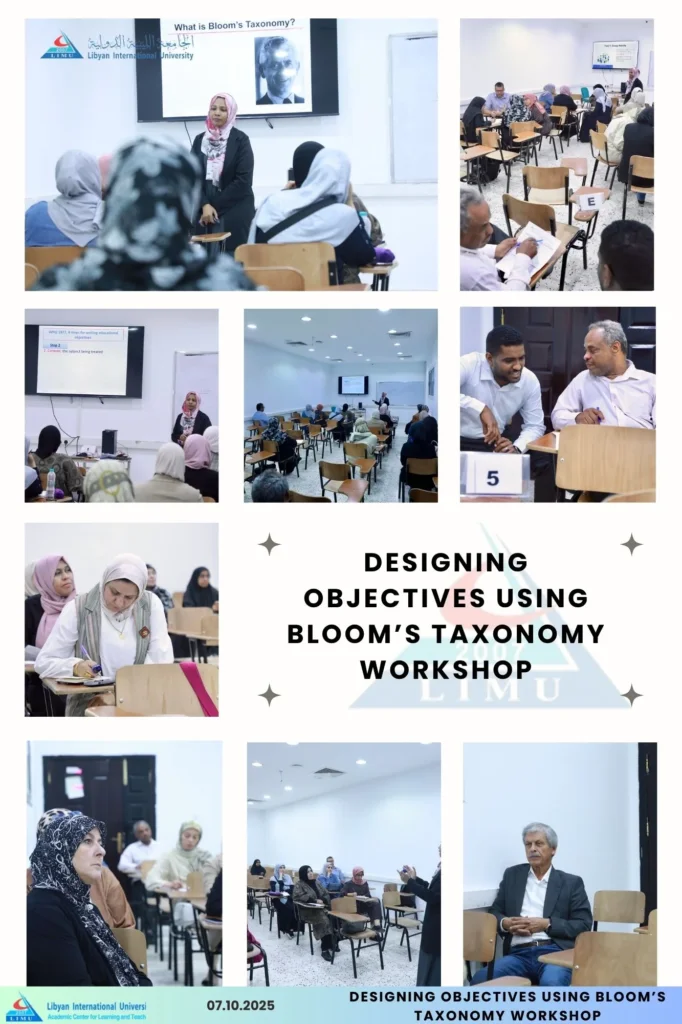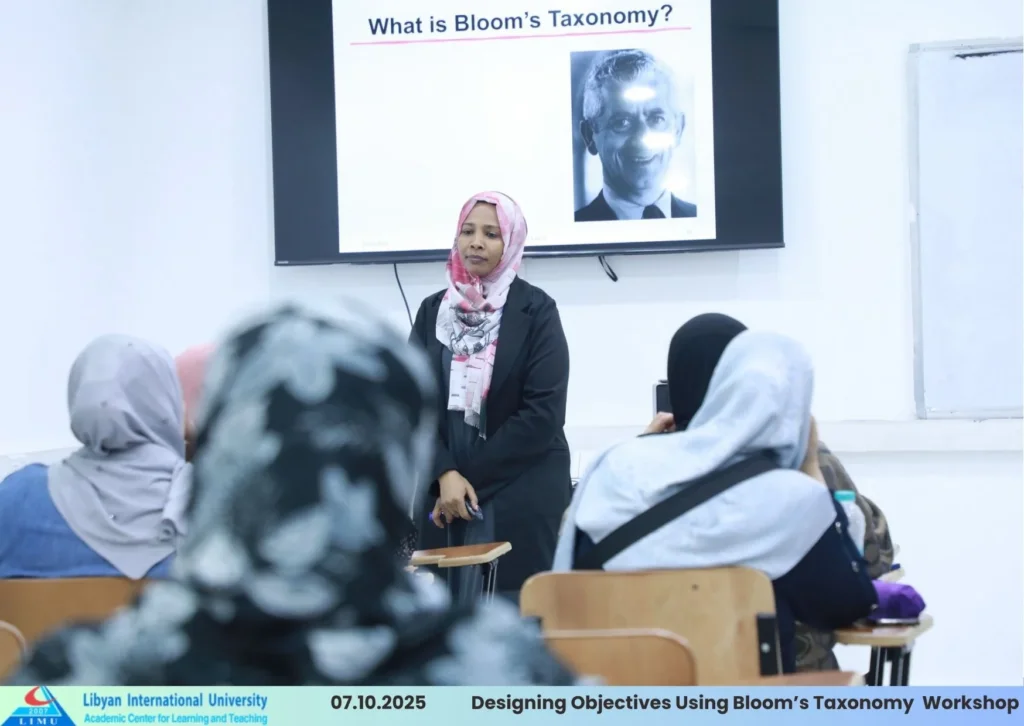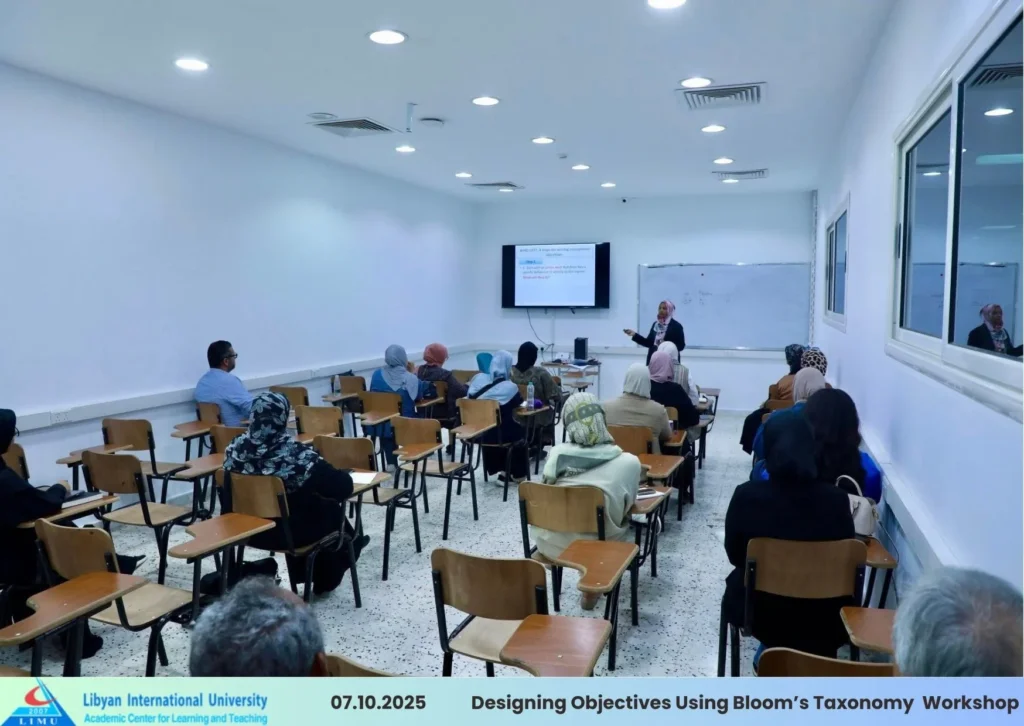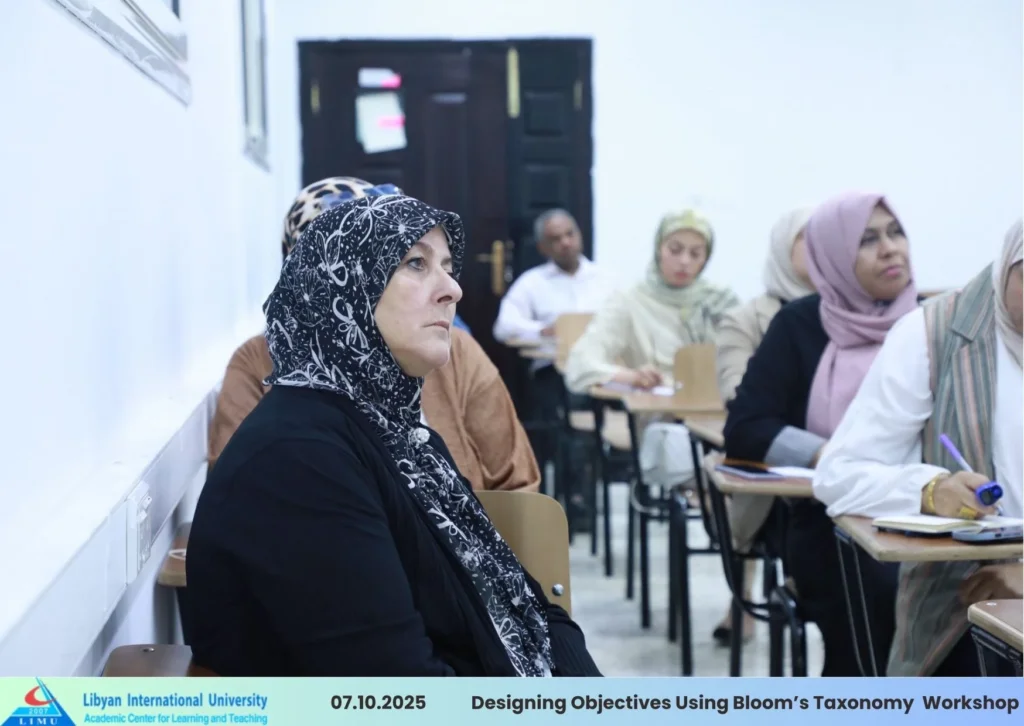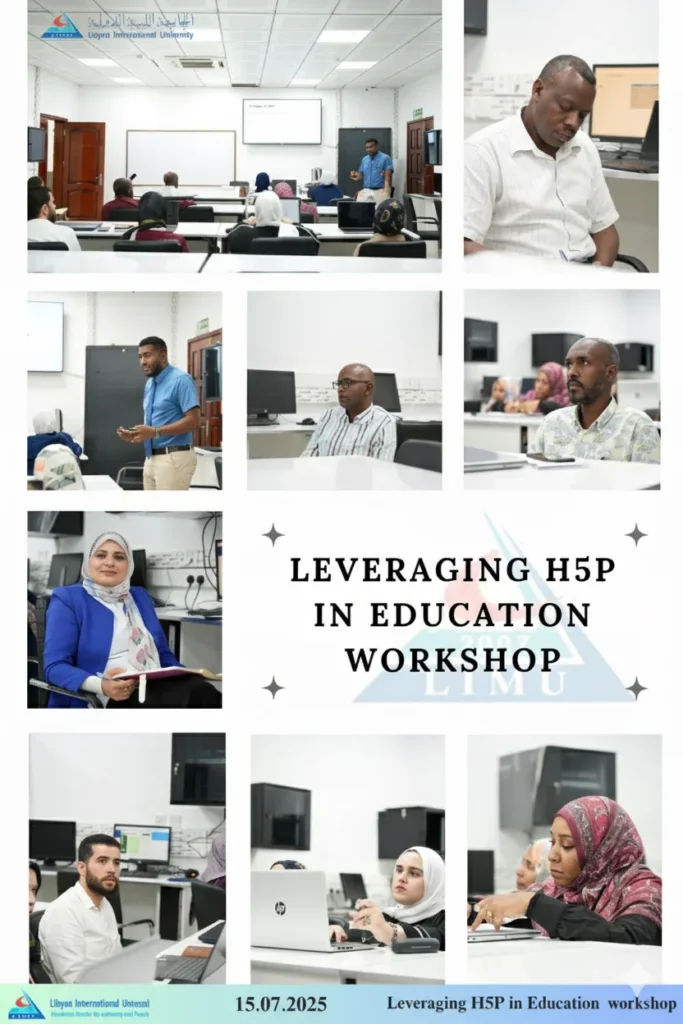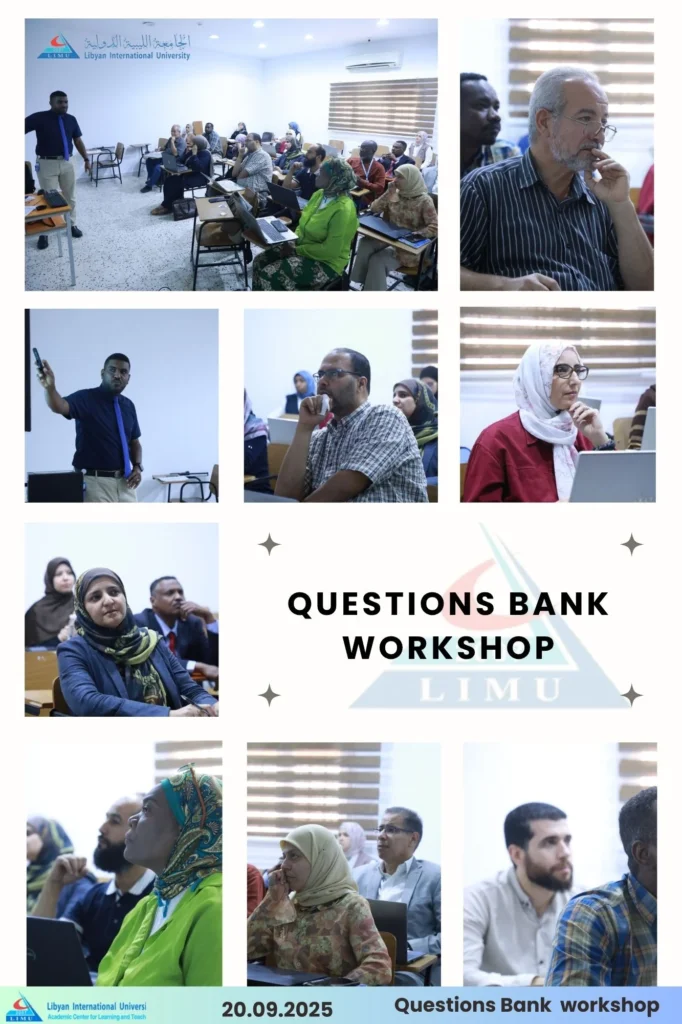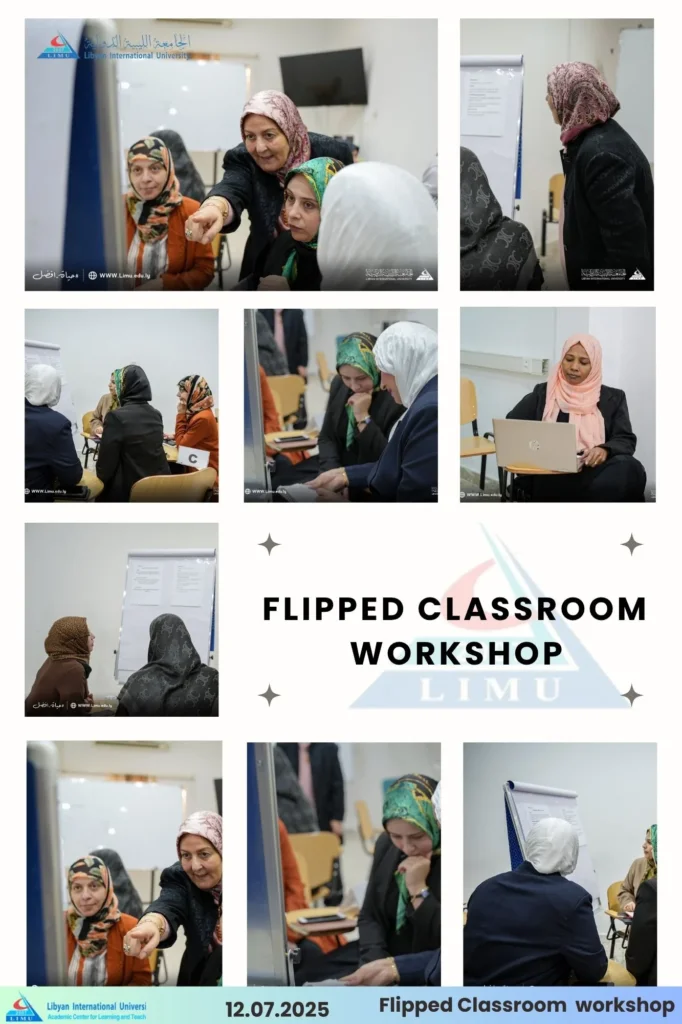The Academic Center for Learning and Teaching (ACLT) at the Libyan International University (LIMU) organized a workshop titled “Designing Effective Learning Objectives Using Bloom’s Taxonomy” for faculty members on October 07, 2025.
The workshop addressed a critical aspect of modern education — the formulation of clear, measurable, and outcome-based learning objectives. Learning objectives are the foundation of effective curriculum design, assessment planning, and instructional delivery. However, many educators face challenges in crafting objectives that accurately reflect course goals and desired student learning outcomes.
Through this workshop, participants were guided on how to use Bloom’s Taxonomy as a practical and systematic framework for developing high-quality learning objectives across cognitive, affective, and psychomotor domains. The taxonomy helps educators define clear learning expectations and ensures alignment between teaching strategies and assessment methods.
The key objectives of the workshop included:
– Understanding the Role of Learning Objectives: Participants explored the importance of well-defined learning objectives in improving curriculum coherence, instructional clarity, and student performance evaluation.
– Exploring Bloom’s Taxonomy: The session introduced the structure and hierarchical levels of Bloom’s Taxonomy, emphasizing how each level supports progressive cognitive development from basic knowledge recall to higher-order thinking skills.
– Constructing Learning Objectives: Faculty members practiced formulating learning objectives at different levels of Bloom’s Taxonomy, ensuring clarity, precision, and measurability.
– Critiquing and Refining Objectives: Participants engaged in peer review exercises to analyze sample learning objectives for alignment, relevance, and quality.
– Integrating AI Tools in Objective Design: The workshop showcased the use of AI-based prompts and tools to assist educators in drafting and refining learning objectives that meet academic standards and accreditation requirements.
The session provided a balance of theory, practical exercises, and interactive discussions, enabling educators to translate educational theory into practice.
By the end of the workshop, participants demonstrated enhanced confidence and competence in writing well-structured, measurable learning objectives that align with course outcomes and institutional goals.
The workshop reaffirmed LIMU’s ongoing commitment to advancing faculty development and promoting excellence in teaching and learning through evidence-based and technology-enhanced educational practices.
